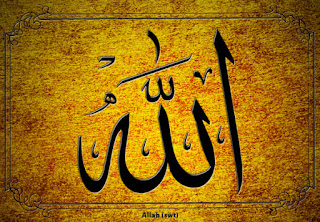Tuesday, May 15, 2018
Shareefa Beevi Saheba (1951-2018)
Monday, April 30, 2018
The Little Girl of Kathua
Monday, January 1, 2018
The Human Soul: States of Being
Sunday, November 26, 2017
'LIQA': Man's Quest for the True Beloved
 Someone,
once, asked the Holy Prophet of Islam (pbuh): When
would the Day of Judgement be? The
Holy Prophet (pbuh) responded by asking the person what
had he done in preparation for it?
Someone,
once, asked the Holy Prophet of Islam (pbuh): When
would the Day of Judgement be? The
Holy Prophet (pbuh) responded by asking the person what
had he done in preparation for it?Tuesday, November 21, 2017
Qur'an: A Divine Favour
 This
is the Book; there is no doubt in it, a guidance for those who fear Allah.
Those who believe in the unseen and keep up prayer and spend out of what We
have given them. And who believe in that which has been revealed to you and
that which was revealed before you and they are sure of what is yet to come.
(Al-Baqara, 2: 3-5).
This
is the Book; there is no doubt in it, a guidance for those who fear Allah.
Those who believe in the unseen and keep up prayer and spend out of what We
have given them. And who believe in that which has been revealed to you and
that which was revealed before you and they are sure of what is yet to come.
(Al-Baqara, 2: 3-5).Monday, November 20, 2017
On True Faith in The 'Ghayb'
Saturday, November 4, 2017
'Taqwa': Path to a Spiritual Life
 By the grace
of Allah, Allah (swt) has given me the Tawfeeq to continue the second
part of the sermon which I started last week there (Last Friday) in which I
mentioned the absolute necessity for the Mumineen (believers) to
undertake journeys/ voyages of the Holy Quran every day. Quran says that for this
voyage, there should be all kinds of provisions.
By the grace
of Allah, Allah (swt) has given me the Tawfeeq to continue the second
part of the sermon which I started last week there (Last Friday) in which I
mentioned the absolute necessity for the Mumineen (believers) to
undertake journeys/ voyages of the Holy Quran every day. Quran says that for this
voyage, there should be all kinds of provisions.Saturday, October 28, 2017
Qur'an: The Perfect Book of God
 For today's sermon, I have specially chosen to
speak on the subject of Ibaadat (worship/ acts of worship - of Allah). This
is why I have read these few verses of Surah Al-Baqara. By introducing the
Quran, the first thing which Allah (swt) has said: “This is the Book;
there is no doubt in it.” The
point to be noted here is that Allah is referring to The Book, His Book,
such a Book which is perfect, wherein there is no trace of error. It contains
lots of meanings. It is such a Book which is far away from you but if you fulfill
certain conditions, then this very Book can come near to you.
For today's sermon, I have specially chosen to
speak on the subject of Ibaadat (worship/ acts of worship - of Allah). This
is why I have read these few verses of Surah Al-Baqara. By introducing the
Quran, the first thing which Allah (swt) has said: “This is the Book;
there is no doubt in it.” The
point to be noted here is that Allah is referring to The Book, His Book,
such a Book which is perfect, wherein there is no trace of error. It contains
lots of meanings. It is such a Book which is far away from you but if you fulfill
certain conditions, then this very Book can come near to you.Sunday, October 1, 2017
Prayers for the Shade of God
 وَإِذَا سَأَلَكَ
عِبَادِي عَنِّي فَإِنِّي قَرِيبٌ ۖ أُجِيبُ دَعْوَةَ الدَّاعِ إِذَا دَعَانِ ۖ
فَلْيَسْتَجِيبُوا لِي وَلْيُؤْمِنُوا بِي لَعَلَّهُمْ يَرْشُدُونَ
وَإِذَا سَأَلَكَ
عِبَادِي عَنِّي فَإِنِّي قَرِيبٌ ۖ أُجِيبُ دَعْوَةَ الدَّاعِ إِذَا دَعَانِ ۖ
فَلْيَسْتَجِيبُوا لِي وَلْيُؤْمِنُوا بِي لَعَلَّهُمْ يَرْشُدُونَSaturday, September 23, 2017
'Seek Refuge in God from All Evils'
Friday, September 15, 2017
'Surah An- Nasr': A Commentary
This beautiful chapter was the last to be revealed to the Holy Prophet Muhammad (pbuh). It was revealed approximately some months before his demise. The revelation of this Quranic chapter happened either in Mecca when he went to accomplish his last Hajj or in Medina when he returned. Victory is the result of the accomplishment of a supreme and final duty and it is also a result of our foremost duty to Allah, and thus we need to ever take it seriously. All victory can ever become possible only with the mighty help of Allah.
Thursday, September 14, 2017
Virtuous Progeny: A Divine Blessing
Marriage and Family: A Divine Favour
Several verses of the Qur’an allude to the many phenomenon of nature and the creation of the human beings in a variety of settings: races, languages, religions, cultures and nations. Indeed the Qur’an cites the creation of the humans, from the humble ‘dust’ and the modest ‘clay’, as a fascinating sign of the complete Power and Lordship of Allah (swt) over all things in all the worlds. The plurality of the humans is described as a Divine Sign: 'One of His signs is that He created you from dust and- lo and behold! -you became human and scattered far and wide'. (30: 22).
Across cultures and peoples, the institution of family is a foundational element of the social order. The relations of family and affinity between men and women through marriage and children are a blessing of this world. The Qur’an says: “And it is Allah who has given you spouses from amongst yourselves, and through them He has given you children and grandchildren and provided you with good things”. (16:73)
Sunday, September 10, 2017
Surah Al-Ma'un: A Commentary
This chapter deals with the meaning and
real way of praying Allah. We need to have a firm conviction and attention during
our prayer; we need to have a practical mind and a sincere will by helping
others. It is with an absolute sincerity and not with an arrogant mind as a way
to show-off that all Muslims need to demonstrate whenever they are
accomplishing their devotions and charities. All devotions/ acts of worship
shall be rendered vain if we do not put all our heart, soul and conscience
towards their fulfilment. We have to perform our prayer with sincerity,
understanding and a spotless (clear) concentration.
Verses 2 &3:
Ara aytallazii yukazzibu bid Diin. Fa zaalikallazii yadu-‘ul yatiim -
Have you seen him who denies the Judgment (to come)?
Then such is the one who repulses the orphan (with harshness);
The word “Diin” here
means: (1) Judgement Day, taking responsibility in the moral and spiritual
worlds, for all deeds which men accomplish, or (2) Faith, religion, the
principles of good and evil in spiritual matters which are very often in
conflict with egoistic desires and personal preferences (of people).
It is those who reject faith or the subsequent responsibility who treat the weak ones with contempt and it is them who lead their lives with egoism and arrogance. Allah loves us all. Why should we then have contempt for the weak and poor?
Saturday, August 26, 2017
Surah Quraysh: A Commentary
Monday, August 14, 2017
'Surah Al-Takathur': A Commentary
It is for this reason that in this verse a clear warning has been given from a spiritual point of view.
Man tends to absorb himself/ herself in these ephemeral things until death surprises him/ her. And at that moment he makes a flashback on his past life on earth and realizes how much his life has been wasted because he has not paid attention to the most important and superior affairs.
These pleasures take up our precious time, as well as our money/ wealth, and our abilities, such time, money and capacities/ abilities that we can showcase for the benefit of society. These pleasures make us forget our duty to Allah and the duty which we have towards our own soul. These pleasures give great satisfaction to our physical senses; But our physical body will one day be buried underground and it is our soul that will continue to live after our death. We must not neglect our soul which is also an important part of our own being.











